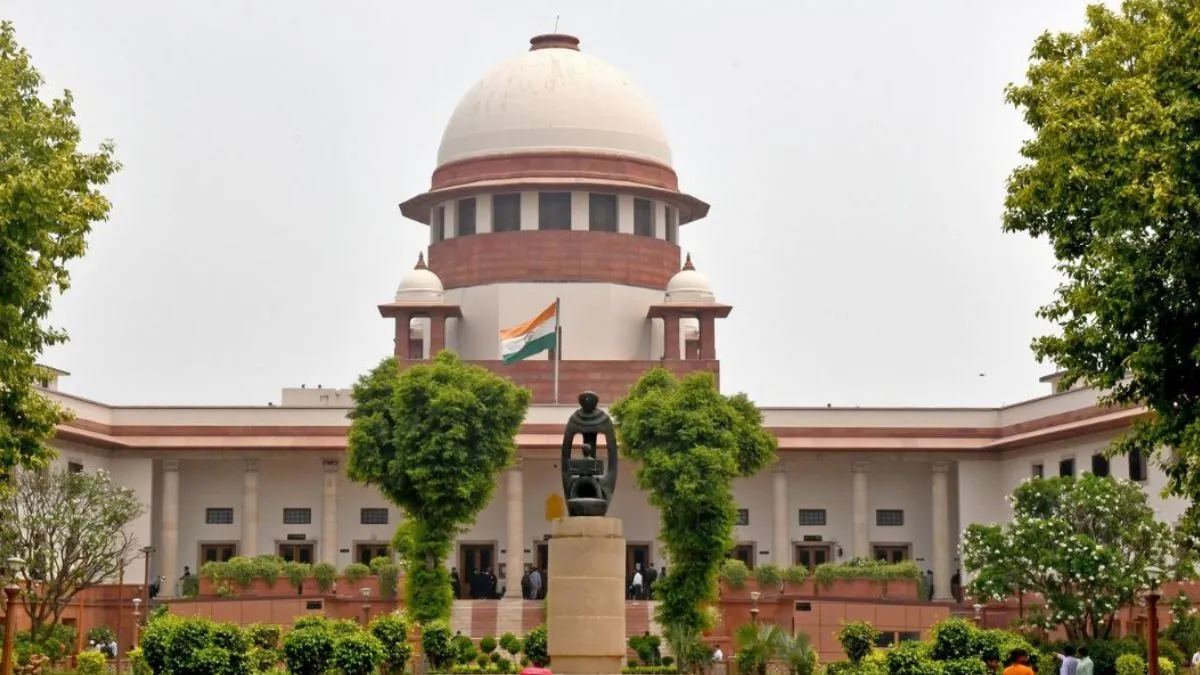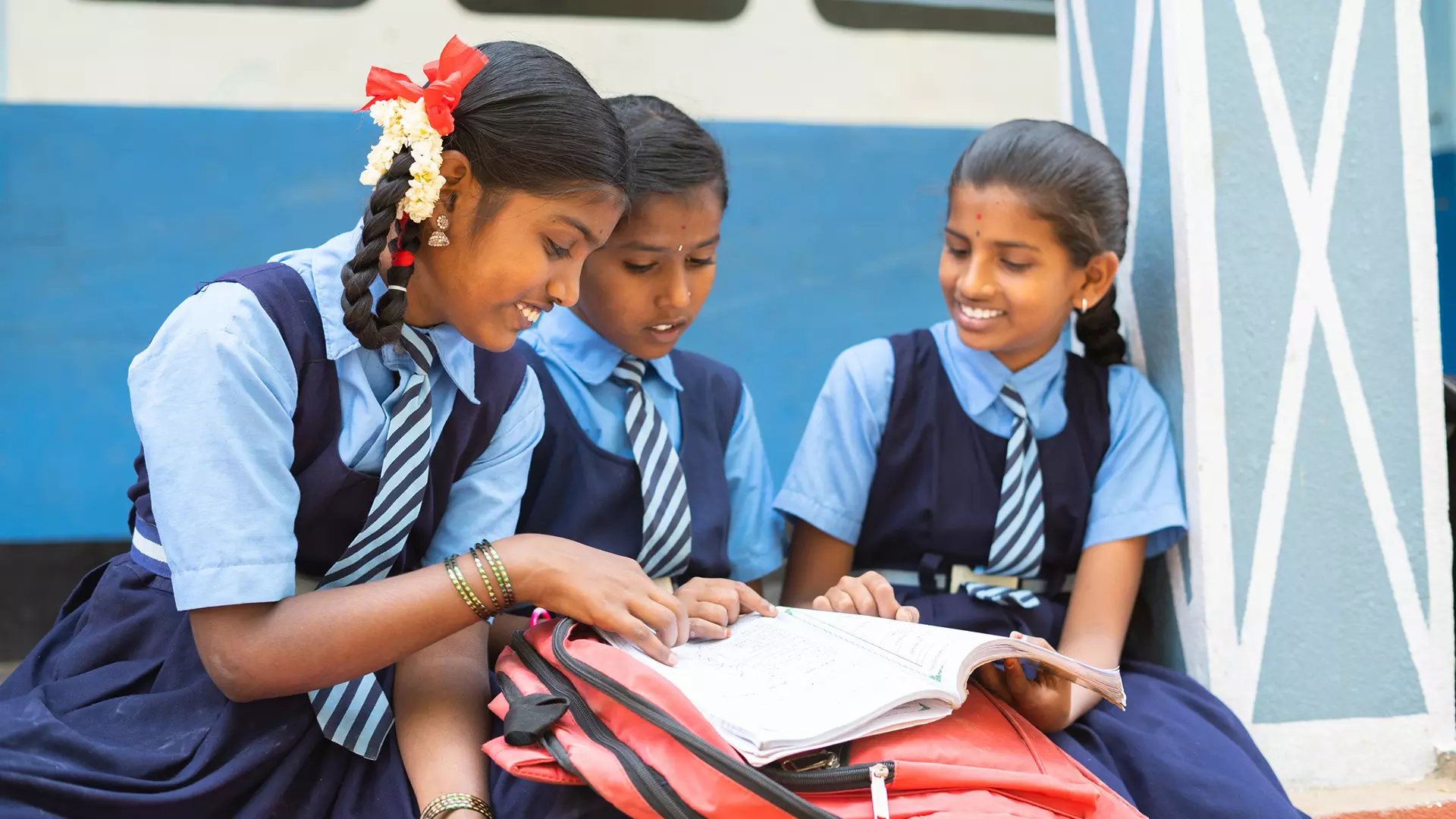In a recent development, the Centre has notified the Supreme Court of India about the implementation of a “Menstrual Hygiene Policy for School-Going Girls,” which was formally approved by the Union Health Ministry on November 2, 2024. This policy seeks to improve menstrual hygiene facilities for female students in government and government-aided schools across India, ensuring girls have the resources and support needed to attend school confidently. The approval follows a court mandate from April 10, 2023, which urged authorities to address menstrual health needs among young female students.
Comprehensive Support to Address Menstrual Hygiene Barriers.
The newly introduced policy targets various issues that have traditionally hampered school girls’ participation and attendance. By fostering awareness and providing sanitary resources, the Centre aims to reduce menstruation-related stigma, boost safe hygiene practices, and prevent school dropouts due to sanitary health challenges. The lack of menstrual hygiene products, combined with limited awareness, has long contributed to absenteeism and reduced involvement in daily activities among schoolgirls. The policy will address these issues through provisions for accessible menstrual supplies, proper disposal methods, and supportive educational programs to normalize menstruation as part of daily school life.
The Centre’s affidavit to the Supreme Court explains the policy’s intent to mainstream menstrual hygiene education within schools, aiming to influence not only students’ health but also the broader school environment by transforming attitudes and behaviors toward menstruation. The Union Health Ministry underscores the role of schools in fostering supportive environments, especially for young girls who face a unique set of challenges due to societal norms around menstruation.

Legal Push and PIL for Free Sanitary Pad Distribution.
This policy was introduced amid ongoing deliberations on a public interest litigation (PIL) led by Congress leader Jaya Thakur, who has been advocating for free sanitary pad distribution for girls in classes 6 through 12. The PIL argues that access to sanitary products is essential for the well-being of adolescent girls and calls for their availability across all government, government-aided, and residential schools. The Supreme Court, in response to this petition, has been monitoring the government’s actions on menstrual health. A bench comprising Justices JB Pardiwala and Pankaj Mithal is set to review the case further on October 12, assessing progress and ongoing efforts by the Centre in implementing sanitary provisions in schools.
The Court’s April 2023 mandate stemmed from growing awareness about menstrual health inequities faced by young students and urged government intervention to address this basic health need. The Centre, in response, has been coordinating with states to ensure that this policy is comprehensive and reaches all eligible institutions.
Focus on Facilities and Nationwide Distribution of Menstrual Kits.
Another highlight of the Centre’s recent filing is its commitment to improving sanitary facilities across government schools. According to the Ministry’s affidavit, 97.5% of schools across India now have separate toilets for female students, addressing a crucial part of menstrual hygiene management. States such as Delhi, Goa, and Puducherry have reportedly achieved 100% compliance with this mandate, setting an encouraging example for the rest of the nation.
The Centre further emphasized a national initiative for distributing menstrual hygiene kits to school-going girls, which it claims is in full swing. These kits are expected to provide sanitary products, as well as instructional materials for safe menstrual practices, thus supporting both physical and educational needs related to menstrual health. The government is reportedly working on creating a streamlined supply chain to ensure that these kits are available in all schools and that refills are provided regularly.
The Centre’s focus on environmentally friendly disposal methods is also a key aspect of the policy. By introducing safe disposal options, the policy not only promotes health but also encourages responsible environmental practices, reducing waste associated with such products.

What Girls Can Expect: Health, Awareness, and Empowerment.
With this new policy, school-going girls across India can anticipate improved access to sanitary facilities and a more supportive environment regarding menstrual health. The Centre’s initiative offers girls practical support, such as regular distribution of sanitary products, as well as long-term educational benefits through programs that demystify menstruation and break down taboos associated with it. By enhancing menstrual health resources and embedding awareness programs within school curricula, the government aims to reduce absenteeism linked to menstruation and empower young girls to pursue their education unhindered.
The Union Health Ministry’s commitment to menstrual health is reflective of a broader societal shift, where previously overlooked health issues are being integrated into mainstream educational policies. The government’s emphasis on building awareness is expected to lead to a cultural change in the way menstrual health is perceived, especially within educational institutions.
For girls and their families, the policy signals a move toward inclusivity and acceptance, where menstrual health is recognized as an integral part of student welfare. The Centre’s policy represents a significant step toward creating a supportive environment where girls can participate fully in their education without the barrier of the health challenges. With this shift, India joins a growing number of countries recognizing the importance of menstrual health in educational policy, setting a precedent for future health and welfare initiatives aimed at young students.
In sum, this new policy is a crucial development for millions of school-going girls in India. By enhancing access to facilities, fostering safe practices, and promoting awareness, the Centre is paving the way for a more inclusive educational experience where girls can thrive without interruptions due to menstruation. This comprehensive approach aims to address the immediate needs of young students while also fostering a healthier, more informed, and equitable environment in the nation’s schools.

